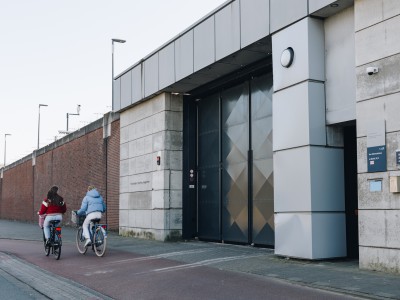Reintegration and the BBA (Limited Security Unit). What is possible?

The Limited Security Unit: A Step Toward Freedom and Reintegration
You are nearing the end of your sentence and want to build a (new) life outside prison. But how do you make the transition from prison to society? This is where the Limited Security Unit (BBA) comes in, an important innovation within the Dutch prison system.
The BBA was established with the introduction of the Punishment and Protection Act on July 1, 2021. These units, which are affiliated with existing penitentiary institutions, offer prisoners in the final phase of their sentence the opportunity to work or follow a training program outside of prison. The goal? A smooth transition to society, a paid job, and reducing the risk of recidivism.
Who is eligible for the BBA?
Not everyone can simply be placed in a BBA. Strict conditions apply:
- The prisoner must have reintegration leave for extramural work. This leave is only granted if it contributes to a specific reintegration goal, laid down in a personal Detention and Reintegration Plan (D&R plan).
- Behavior plays a major role. The prisoner must have demonstrated during their detention that they are suitable for reintegration into society.
- Risks are carefully weighed. Can the safety of victims, relatives, and society be guaranteed?
- There are also clear grounds for exclusion. Prisoners serving a life sentence, those subject to a TBS or ISD measure, or those in a high-security institution, for example, are not eligible.
A joint process
The success of a BBA program depends on cooperation. The director of the institution is responsible for initiating the detention phasing process, but the prisoner also has a major responsibility in this process. He or she must cooperate in providing information, such as a residential address and daily activities.
The case manager coordinates the process on behalf of the director and seeks advice from external parties such as the probation service, the Public Prosecution Service, and the police. This takes time; on average, it takes eight weeks to process a request. So start gathering information for a complete application together with your case manager in good time. An incomplete application almost always leads to unnecessary delays!
Is your detention phasing being handled adequately (or not)? We can help you.
As a detainee, you are entitled to fair and careful handling of your detention phasing. But what if you feel that your case is not being handled adequately? Or that your request is not being taken seriously? In some cases, you can file a complaint with the supervisory committee. Submitting a complaint is not only useful if the supervisory committee declares your complaint to be well-founded, but can also help to bring your case to the full attention of the employees involved prior to the complaint being dealt with.
In most cases, you are expected to be ‘self-reliant’ in matters relating to the phasing. This means that no legal aid (financed legal assistance/pro bono) will be granted for assistance from a lawyer. However, you do have the right to seek assistance. Partly in view of the large number of requests for assistance we receive, we always charge an advance of €750.00 including VAT for the initial exploratory work. We kindly request that you take this into account.
Do you have any questions or doubts about your detention phasing? Please contact us. We will help you to safeguard your rights and take steps towards a successful reintegration.


